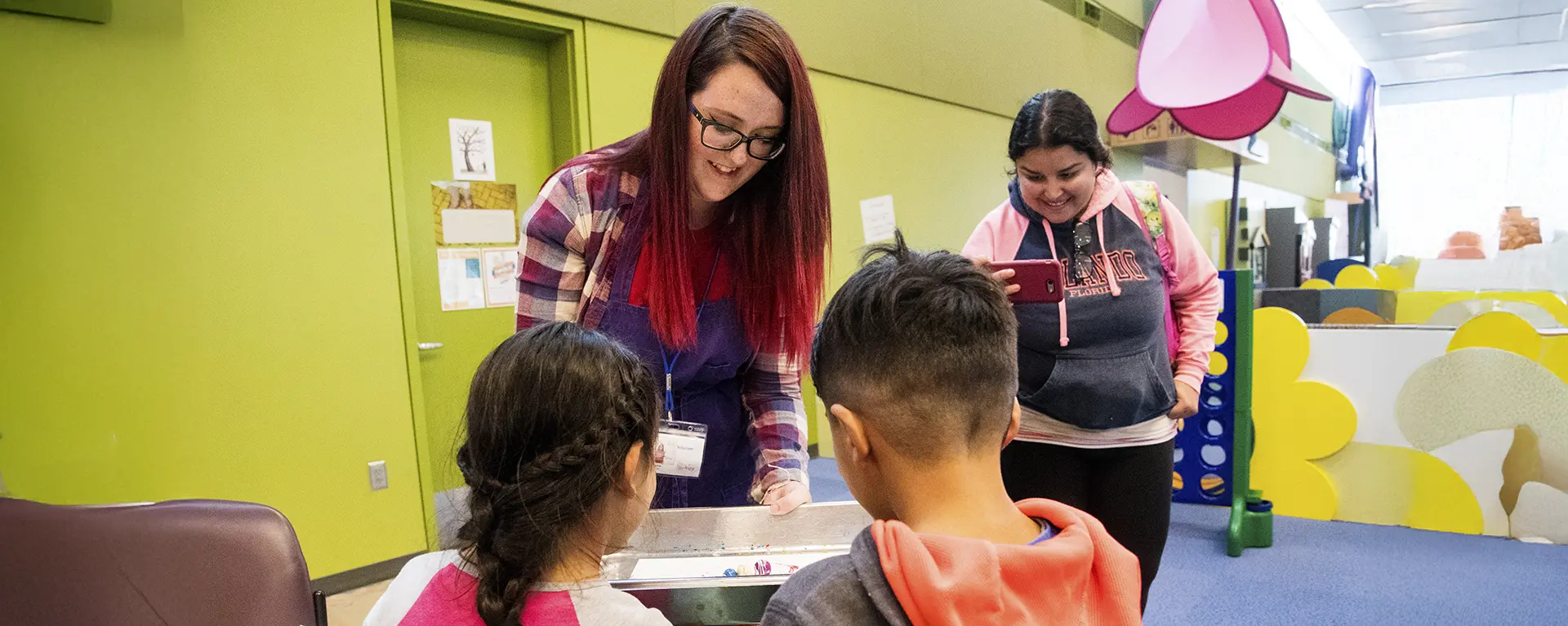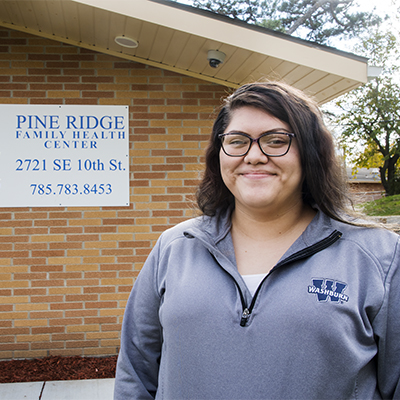
Make an impact with the Community & Civic Engagement WTE (CCE-WTE)
The Community & Civic Engagement track of the Washburn Transformational Experience (WTE) is your opportunity to become a civically engaged leader with a clear vision for how you can contribute to and support your community.
No matter your major or minor, there are countless ways to get involved. Through this program, you won't just make a difference in the community—you'll also grow personally and professionally, gaining valuable skills and experiences that will shape your future.

Ichabods working with and for the community in their field of study
As you complete this WTE track, you'll collaborate with faculty, fellow students, and community partners in meaningful, hands-on experiences. Throughout the process, you’ll reflect on the power and purpose of civic engagement, gaining valuable insights that will shape your future.
You'll be matched with a site and project that align with your academic, professional, and personal interests. This personalized match, along with guidance from a community-based mentor, will help you develop the skills and knowledge needed to succeed—not just in your career, but as an engaged and impactful member of your community after graduation.
- Students will complete 300 hours of combined community engagement and training and reflection. Completion of all requirements for the CCE-WTE should not exceed three (3) years.
- Prior to starting, students must fill out the enrollment form and complete the pre-WTE survey.
- At least 240 of the hours must be pre-approved community engagement activities.
- No more than 20% (60 hours) and not less than 5% (15 hours) of the total hours can be from trainings, reflection, approved academic classroom engagement, conferences, speakers, etc.
- A final presentation of learning, in some format and under the mentorship of a faculty member, is required after the 300 hours are complete.
Examples of past projects
An anthropology and history major worked with the Kansas State Historical Society to preserve the history and historical landmarks associated with the Exoduster Movement in the late nineteenth century.
An economics and political science major worked with the Kansas Hospital Association's data team to provide actionable information to hospitals across the state in order provide care at the highest level to the communities they serve.
An art education major worked with the Kansas Children's Discovery Center where she developed and piloted several new art-based activities and lesson plans for young children.
Start your transformational experience
Contact the CCE-WTE Director, Kristine Hart to express your interest.
WTE Program
Transformation Day
Apeiron
GET IN TOUCH WITH the Aleshire Center
Mailing Address
1700 SW College Avenue
Plass Learning Resource Center
Room 217
Topeka, KS 66621
Phone & Email
785.670.2000
aleshirecenter@washburn.edu
Request Information Form

